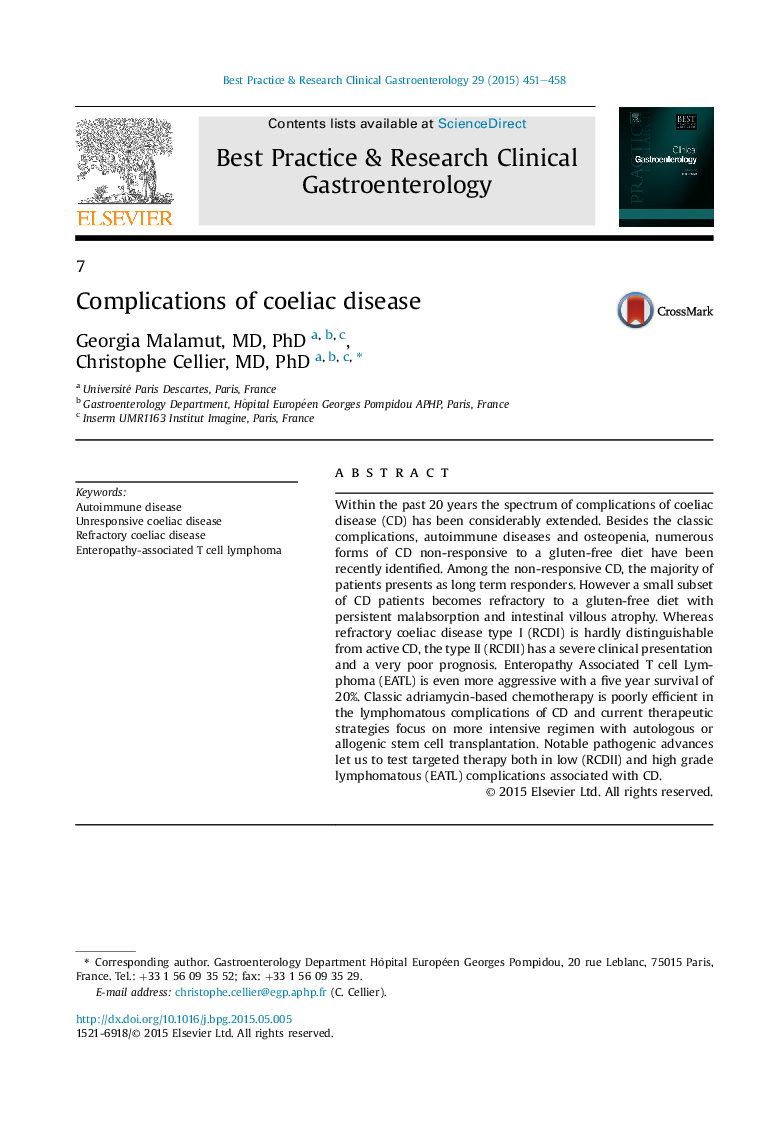| Article ID | Journal | Published Year | Pages | File Type |
|---|---|---|---|---|
| 3254237 | Best Practice & Research Clinical Gastroenterology | 2015 | 8 Pages |
Within the past 20 years the spectrum of complications of coeliac disease (CD) has been considerably extended. Besides the classic complications, autoimmune diseases and osteopenia, numerous forms of CD non-responsive to a gluten-free diet have been recently identified. Among the non-responsive CD, the majority of patients presents as long term responders. However a small subset of CD patients becomes refractory to a gluten-free diet with persistent malabsorption and intestinal villous atrophy. Whereas refractory coeliac disease type I (RCDI) is hardly distinguishable from active CD, the type II (RCDII) has a severe clinical presentation and a very poor prognosis. Enteropathy Associated T cell Lymphoma (EATL) is even more aggressive with a five year survival of 20%. Classic adriamycin-based chemotherapy is poorly efficient in the lymphomatous complications of CD and current therapeutic strategies focus on more intensive regimen with autologous or allogenic stem cell transplantation. Notable pathogenic advances let us to test targeted therapy both in low (RCDII) and high grade lymphomatous (EATL) complications associated with CD.
